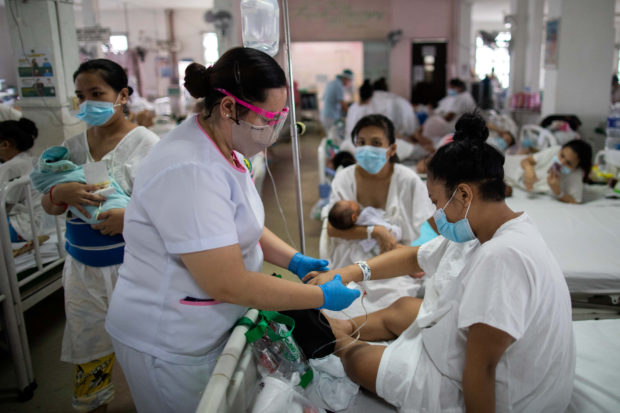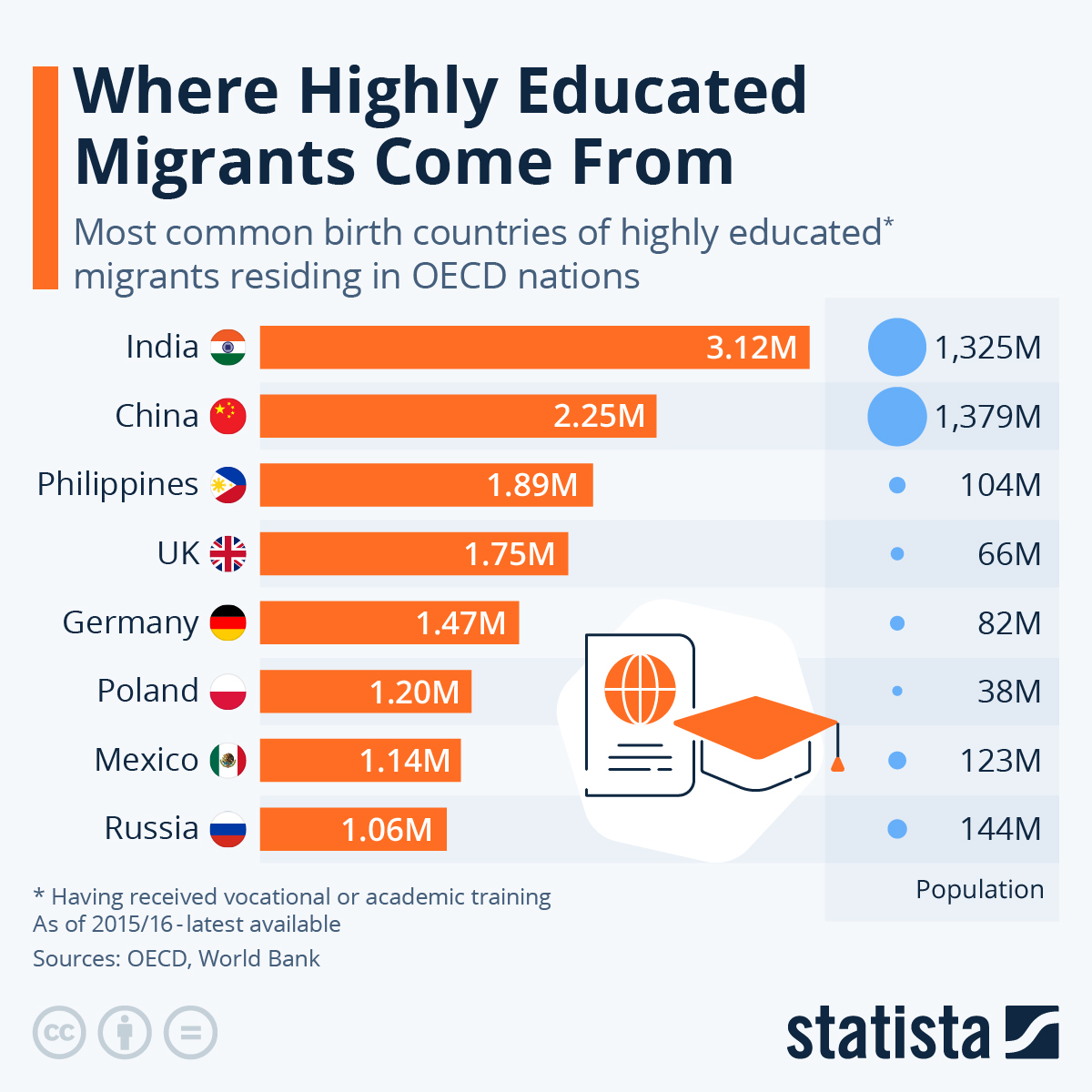PH trails behind India, China on countries where highly educated migrants come from

Filipino nurse Marciana Erispe tends to a mother inside the maternity ward of the government-run Dr. Jose Fabella Memorial Hospital, amid the coronavirus disease (COVID-19) outbreak, in Manila, Philippines, September 18, 2020. REUTERS/Eloisa Lopez
The Philippines trails behind India and China when it comes to the most common birth countries of highly educated migrants living in countries under the Organisation for Economic Co-operation and Development (OECD).
India topped the list, with 3.12 million migrants known to be residing in OECD nations as of 2015 to 2016, as per the OECD via Statista. China followed suit with 2.25 million migrants, the Philippines with 1.89 million migrants, the United Kingdom with 1.75 million migrants and Germany with 1.47 million migrants.
The statistics was based on a working paper from the OECD published last Feb. 20, “A Global Profile of Emigrants to OCED Countries: Younger and More Skilled Migrants from More Diverse Countries.” It was reported that 120 million people make up the adult foreign-born population (above 15 years old) of OECD countries in 2015 to 2016.
Health care professionals, especially nurses, comprise much of the highly skilled Filipino migrants in OECD countries and elsewhere. Citing a 2005 working paper on Philippine health workers migration commissioned by the International Labour Organization, the report found that Filipino nurses represented the largest category of health workers leaving the country, followed by midwives and doctors.
Article continues after this advertisementThis phenomenon is informally referred to as “brain drain,” or the exodus of highly educated and highly trained people from their birth country for jobs in other countries.
Article continues after this advertisementThe COVID-19 pandemic has inevitably affected the deployment of Filipino nurses abroad. Labor Secretary Silvestre Bello III, during a hearing on the proposed 2021 budget of the Department of Labor and Employment at the Senate on Oct. 1, told solons there is a “strong clamor” from other countries for the services of Filipino nurses.
The Philippine Overseas Employment Administration issued Governing Board Resolution No. 09-2020 in April, which temporarily suspended the deployment of Filipino health care workers abroad because of the COVID-19 pandemic. President Rodrigo Duterte has approved the lifting of the temporary deployment ban, as per Bello on Nov. 21, thus allowing Filipino nurses to go overseas. JB
RELATED STORIES:
There is ‘strong clamor’ for Filipino nurses abroad, says Bello
Graduate returns to fields with immigrant farmer parents to mark journey
Hospital workers honor nurse who donated organs in her passing
